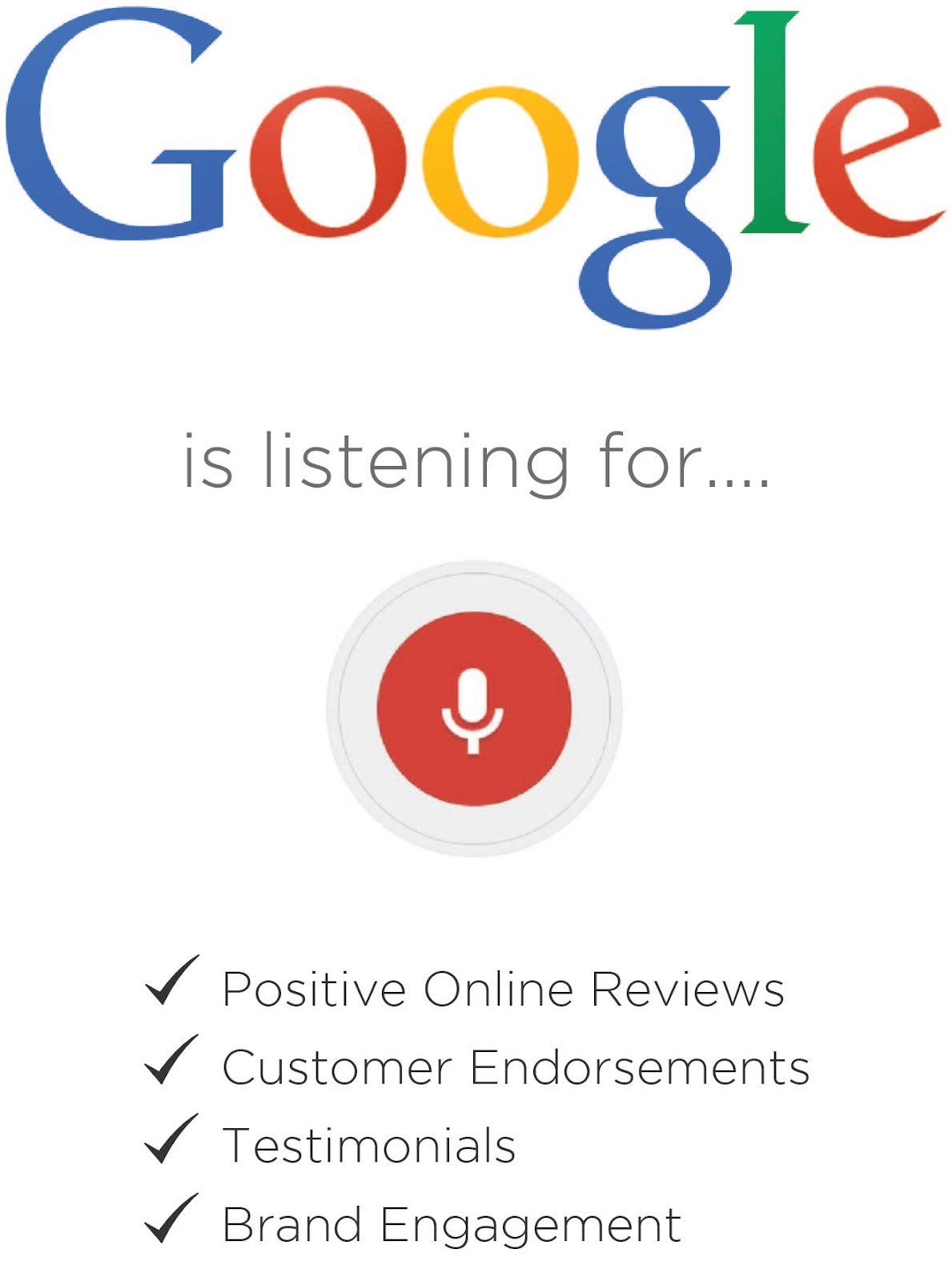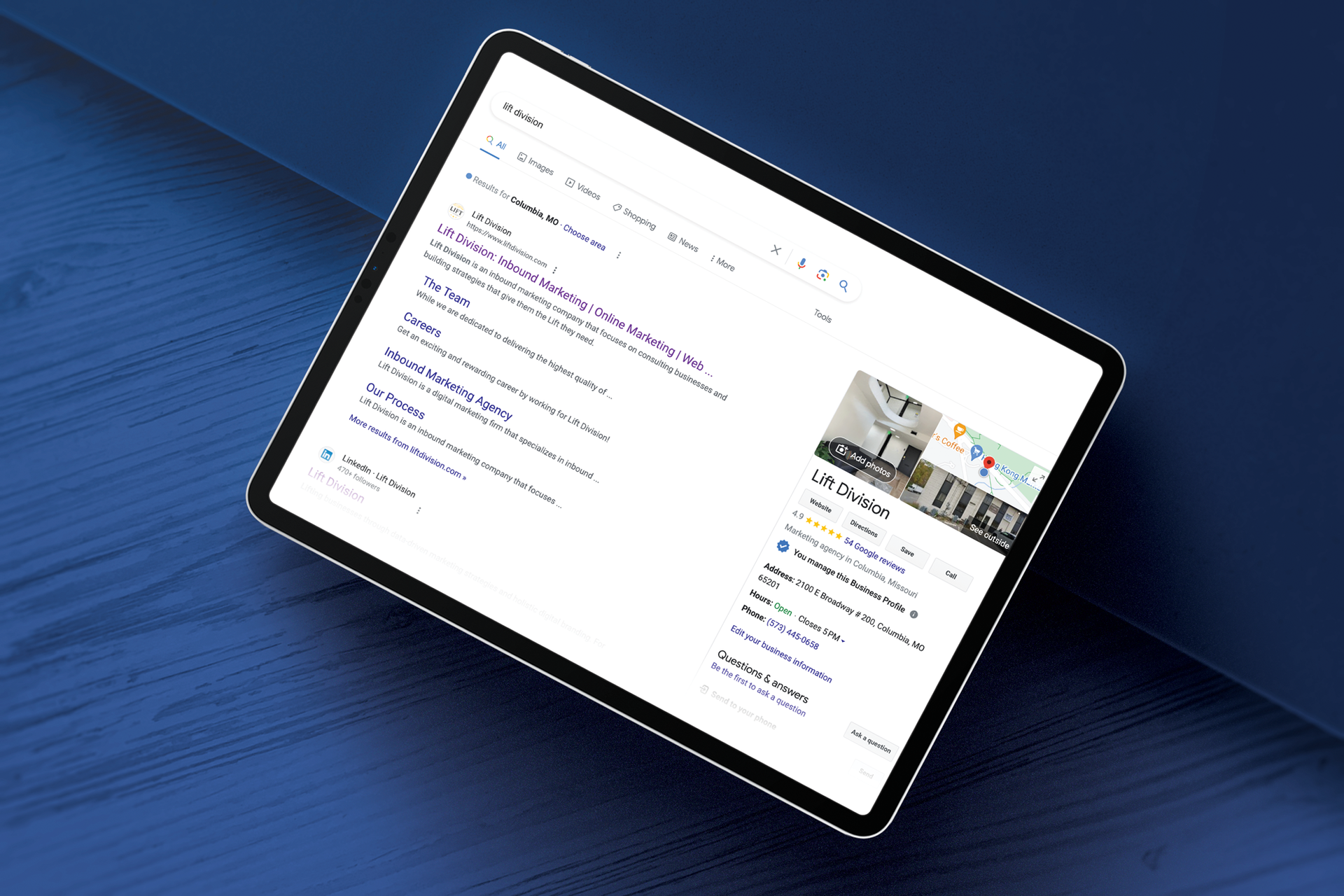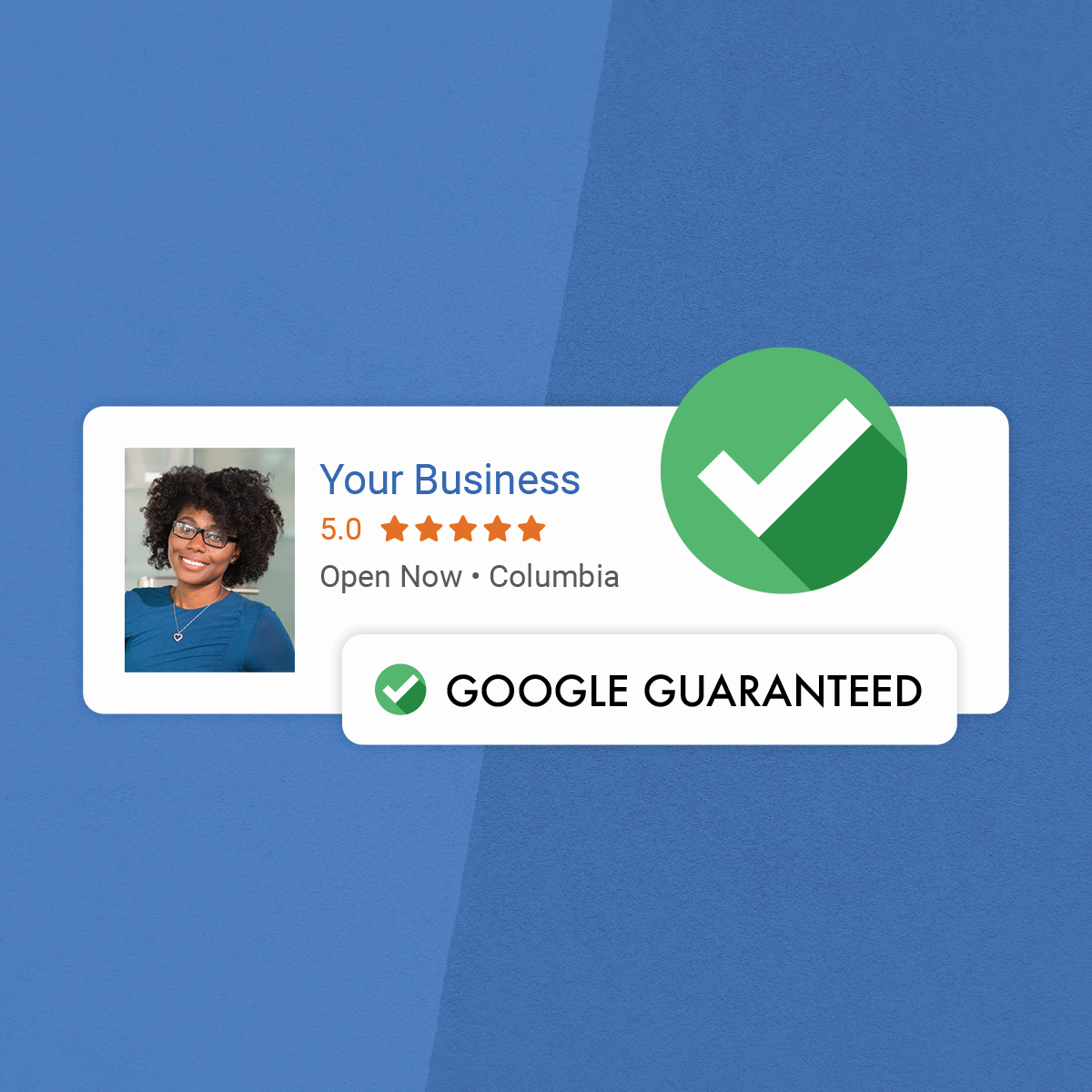The fact is, if Google provides a bad user experience, users could simply switch and begin using another search engine. But guess what? We don’t, and most people wouldn’t even consider it. We all like reliability and familiarity, and we will keep using Google as long it’s the best out there, providing the greatest search value to us all.
Is Google Really That Bad?
Dinner Conversation Becomes Business Conversation
A few weekends ago, I had an insightful experience at Jake Bowlby’s house. The setting was nothing new: Each summer, Jake (Lift Division’s Regional Sales Manager) invites around 25 people over for a feast, featuring the most important guest, Beau Davis of the Calderello Italian food family. Every time he is in the kitchen, he prepares sausage and meatballs aromatic enough to make a group of vegetarians go against their better judgment. Truth be told, I’m usually not much of a sausage-and-meatballs type of guy — but Beau bears the secret Calderello family recipe, which is so incredible it’s like a completely different food group or something.
Equally amazing was the company; I mean these were my type of people. The group was composed of completely transparent people asking compelling questions and telling hysterical stories (some of which I can’t un-hear). These were also my type of people from an action standpoint: A group of driven individuals, people who don’t just talk about ideas, they go execute them. Among those sharing stories were fellow entrepreneurs in the mid-Missouri area, including the founder of 9thandElm.com, the owners of Logboat Brewery and the Chief Production Officer of Veterans United, just to name a few.
Whenever cocktails and strong-minded people come together, there are always some engaging and passionate conversations — and that night was no different. At one point, one of the entrepreneurs turned to me and asked, “Russell, what do you think of Google?” Putting aside the unconventional nickname (few call me Russell except close friends, my parents and the cops), my reply was simply, “I think Google is an amazing company and they do some really awesome things on an ongoing basis.”
...and the next sound I heard was his jaw hitting the floor. “Are you serious?” he said. “You’re the only person I’ve ever asked that question to who replied like that, and I’ve asked some very smart people.” He continued, “Don’t you know Google is basically a monopoly and we are forced to play by its rules? How do you feel about Google saying a particular optimization strategy is okay for a long time, and then completely changing its mind the next day?”
We went back in forth on this for the next 20 minutes or so, talking and listening as each of us tried to make points that were somewhat watered down by Tito’s Vodka. By the end of the conversation, not much had been reached in terms of a point, except that I kept returning to the following question: “Is Google really that bad?”And I kept giving myself this answer: I really don’t think so at all.
From A Business Owner’s Perspective, Google’s Changes Can Be Challenging
Thinking back to the conversation, I totally understand most of this entreprenuer's qualms with Google. He’s the owner of an emerging eCommerce business and he’s scared to death of what Google will do tomorrow and how those changes may require him to change his business practices. Each move Google makes requires entreprenuers to invest to stay updated, and I completely get that. Like 100%. And I’m sure every smart business owner can sympathize to some extent.
So do do these frustrations surrounding continual change actually hold water? Absolutely. Just listening to Matt Cutts, Google’s head of Webspam, will give you a slight headache. He talks a lot in the grey about ongoing algorithm changes, but never really says anything concrete. And yes, it’s a little annoying, but frankly, how can he actually say anything conclusively? The likelihood of what he says changing somewhere down the road is near 100%, seeing as how change is so inherent to the digital world. So why set himself or Google up for failure by saying one thing and then having to go back and change his story later? In this light, it makes sense for Cutts to be somewhat ambiguous and inconclusive in his talks.
It's not uncommon to hear comments stating that Google is a monopoly and they can do whatever they want. While I think it’s easy to make that statement, simply because Google has such a strong impact on us all, I’m just not exactly on the same page here. Putting aside the fact that the Justice Department hasn’t stepped in just yet, Google’s practices and quality standards aren’t significantly different than that of Bing or other search engines. It may have the lion’s share, but that doesn’t make it a true monopoly, since there remain several other comparable options (although I still think that all business owners are crazy not to pay close attention to every move Google makes.)
A Matter of Perspective
I believe that, initially, he and I were on different pages because we were both trying to tackle a question from completely different perspectives, and I don’t think either of us realized it at the time. He was speaking from a business owner’s perspective, and he was (again, understandably) tired of the constant change. I was speaking as the owner of a digital marketing firm that specializes search marketing, web design and branding. Every day, it’s my job to understand Google to the best of my ability, and to adapt client strategies with them. While many small business owners are tired of a constantly changing search environment, I’m well aware that change in this space is naturally constant and should be expected. In fact, my competitive nature eagerly accepts the challenges that change brings.
When it comes down to it, I don’t believe Google is making the rules at all in the first place. I believe it’s actually all of us, the web users, that are creating and dictating the rules. I believe Google is simply trying to keep up with the changes in technology and culture, not to mention everything else society sees as valuable and worth searching for. Google does this by making changes on its search platform to keep up with the dynamic state of society (of humanity in general, in fact!)
Each and every day, there are new websites, apps and devices that spring up, bearing the potential to completely alter our online ecosystem. This year there will probably be another game-changing social network, entirely new industry, or something that will otherwise force search engines like Google to adapt. Google doesn’t want to spend a bunch of resources to change its algorithm, but it does have to adapt its business model based on consumer behavior, just like other smart business owner. Google must provide the most accurate results with the most valuable information, as quickly as possible. If it didn’t adapt, not even the mighty Google would be around very long.
So while I agree Google’s changes can clearly cause a business owner pain, I also believe nearly every change I’ve witnessed is better in the long run for all of us. I believe Google’s changes challenge every business owner to do better things and indirectly help us bring more value to our clients. In short, I don’t blame Google for change because change is inevitable.
Recent Google Changes and Why They Make Sense
Let’s take a look at some recent changes in order to better understand the logic behind Google algorithm updates:
Google is ranking sites better if they’re mobile responsive. Does this suck for organizations that don’t have responsive websites? Yes, because now a business owner is crazy not to strongly consider investing in an updated, responsive site. Is there an argument that Google is forcing businesses to change? Perhaps. But really, it’s what mobile searchers want to see, right? Google isn’t making rules, they’re simply changing its algorithm based on what people are doing.


According to a 2013 Mobile Path-to-Purchase study, 46% of searchers now use mobile exclusively to research, and that number will only increase. Don’t we all want to view a site that we can read quickly instead of one that we have to figure out how to use two fingers and expand without wrecking the car? (Sidenote: I am absolutely not advocating browsing and driving.) Google is indirectly helping all business owners by saying:”Get your site updated, for the love of God, so that all these mobile searchers can actually view your site and convert on it.”
Google is rolling out changes that penalize businesses for having unnatural links.
The quick backstory here is that many shady and amateur SEO companies were in the business of writing and spinning crappy articles for their clients and getting them published on link-farm websites simply for the purpose of building backlinks. By doing so, the SEO companies could theoretically generate additional authority (or popularity votes) in Google’s eyes for their clients.
Google has changed its algorithm to heavily factor social media mentions. Again, a business owner could respond to this along the lines of: “Dang it, now I have to invest more of my time in social media because Google changed on me again.” And again, I get that. But Google is in the business of providing awesome, valuable search results, aren’t they?
So What Should Business Owners Do?
Look, there’s no reason to fight Google. In fact, business owners shouldn’t worry about Google; instead, they should think like Google for their audience. In that sense, they should seek to continually improve the quality of their work and the value they bring to others. By working on consistently providing value to their customers both online and offline, business owners can expect to experience a natural, accurate, and appropriate ranking from Google.
Sure, it’s important to pay attention to what Google does — but it’s much more important to focus on creating a strong digital brand for Google to rank higher in the first place. So how can business owners do that?
- Figure out what your target audience values and focus on creative ways of providing it.
Create and share great content (articles, videos, white papers, infographics, etc.) that people will be compelled to consume and share. - Do SEO the right way.
There’s no reason to try to game the system. In SEO, it isn’t worth it to shortcut anything, and you simply can’t go wrong by doing things the correct way. Sure, it’s a little bit harder and frankly, it is a little more expensive, but each shortcut you take in this business will eventually catch up to you. - Gain authority in real life to gain authority online.
Do things in your community and industry to gain authority and respect — get published in a trade publication, offer free seminars or workshops. In general, do something noteworthy. Then make sure you, your teammates and others share the story with others. - Give back whenever possible.
Google loves positive sentiment and there’s nothing better for doing so than giving back. For example: Rally your team together to volunteer and pick up trash on the highways, then post pictures of your good deed on social media so that it will get people talking about all the cool and virtuous stuff you’re doing. - Do great work and ask your clients to share their experience with others.
As mentioned previously, Google is very interested in what others are saying about your business. Consistent, positive social mentions online will likely see your rankings grow in search results rankings.
Google and all other search engines motivate us to do great things on a consistent basis. Great work fosters great reviews. And great social proof builds brands.
Am I a bit overly complacent with Google’s changes, a bit on the positivity bandwagon no matter what they may do next? Admittedly, generally yes. And considering I’m in the search marketing industry, I realize that it may sound a bit like a cop-out, but I truly do believe Google is in the business of providing value and making changes to continue adding value.
Like nearly all business owners, I depend on Google’s search results for qualified leads, online visibility, and a countless number of transactions every day; I, for one, appreciate a business that focuses on providing a better, more authentic and valuable experience for us all.

Rusty Brett is the owner and Chief Executive Officer of Lift Division. With several years of entrepreneurship, business ownership and marketing experience under his belt, Rusty has a passion for not only launching businesses, but also helping other businesses grow their sales and client base.
GET A FREE ONLINE MARKETING ASSESSMENT!

Our FREE Aerial Snapshot will:
- Identify Valuable Keywords & Your Current Rankings
- Analyze Your Current Local Presence
- Review Key Performance Indicators on Your Website
- Assess Your Social Media Profiles
- Provide You with a Reputation Analysis










